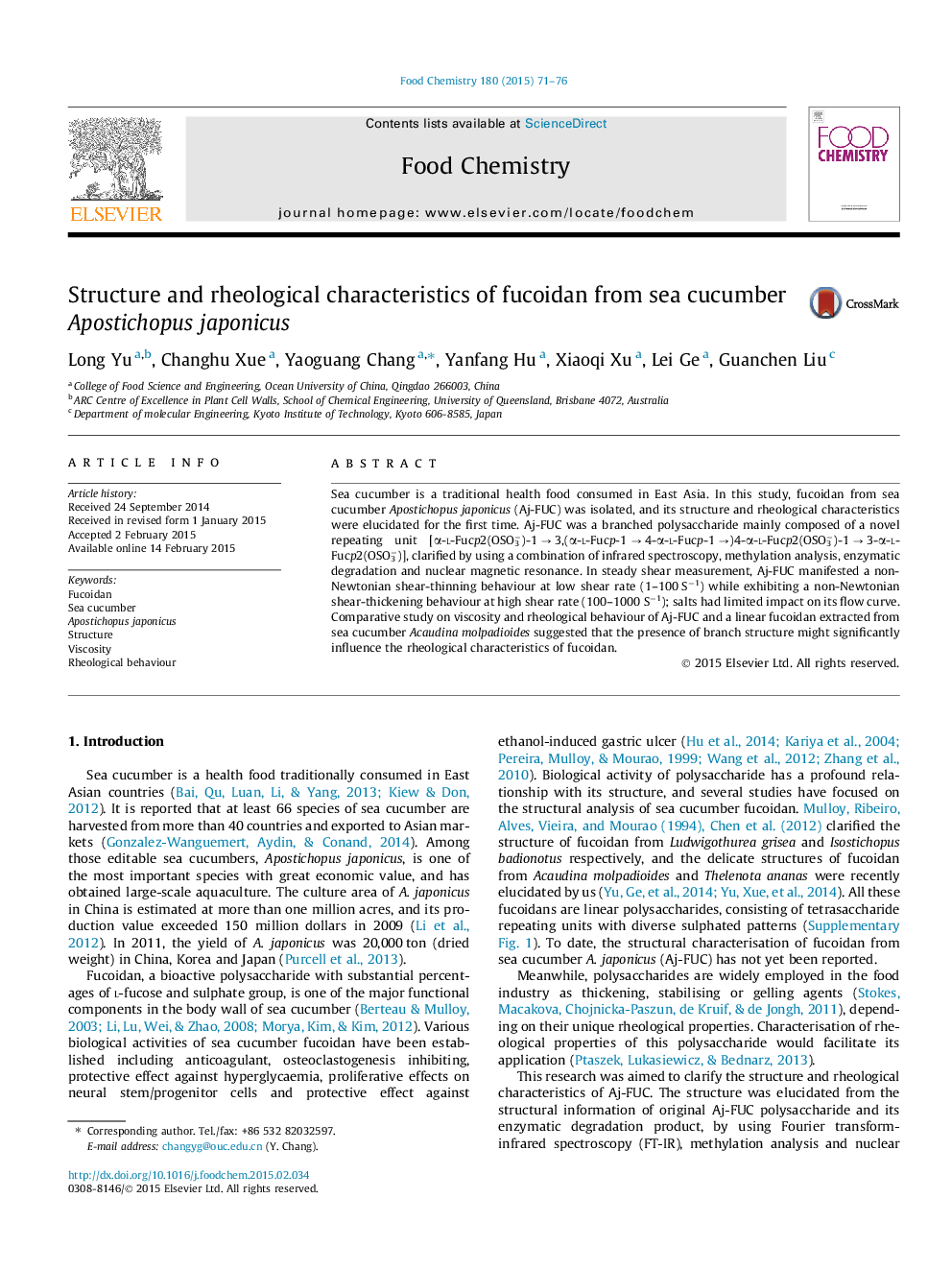| Article ID | Journal | Published Year | Pages | File Type |
|---|---|---|---|---|
| 1184479 | Food Chemistry | 2015 | 6 Pages |
•Fucoidan from sea cucumber Apostichopus japonicus (Aj-FUC) was characterised.•Aj-FUC was a branched fucoidan composed of novel pentasaccharide repeating unit.•It was distinct in viscosity and rheological behaviour from linear fucoidan.•Branch structure might significantly influence rheological property of fucoidan.
Sea cucumber is a traditional health food consumed in East Asia. In this study, fucoidan from sea cucumber Apostichopus japonicus (Aj-FUC) was isolated, and its structure and rheological characteristics were elucidated for the first time. Aj-FUC was a branched polysaccharide mainly composed of a novel repeating unit [α-l-Fucp2(OSO3−)-1 → 3,(α-l-Fucp-1 → 4-α-l-Fucp-1 →)4-α-l-Fucp2(OSO3−)-1 → 3-α-l-Fucp2(OSO3−)], clarified by using a combination of infrared spectroscopy, methylation analysis, enzymatic degradation and nuclear magnetic resonance. In steady shear measurement, Aj-FUC manifested a non-Newtonian shear-thinning behaviour at low shear rate (1–100 S−1) while exhibiting a non-Newtonian shear-thickening behaviour at high shear rate (100–1000 S−1); salts had limited impact on its flow curve. Comparative study on viscosity and rheological behaviour of Aj-FUC and a linear fucoidan extracted from sea cucumber Acaudina molpadioides suggested that the presence of branch structure might significantly influence the rheological characteristics of fucoidan.
